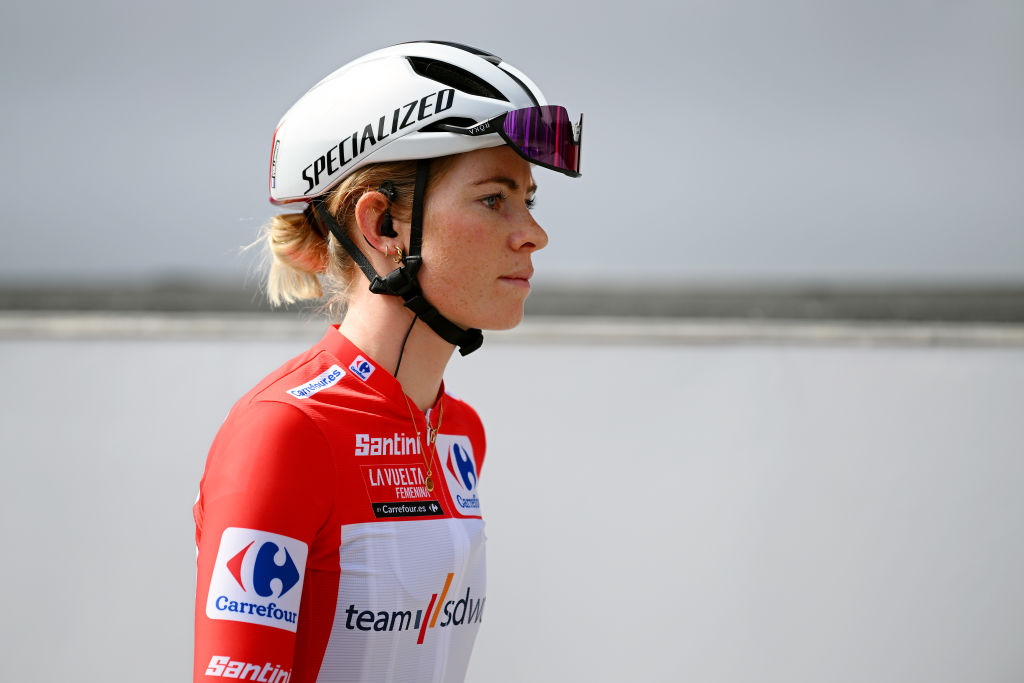Saturday’s stage of La Vuelta Femenina raised controversy as overall leader Demi Vollering (Team SD Worx) lost her red classification jersey to Annemiek van Vleuten (Movistar Team). It began only 36km into the 106-kilometre stage because of a combination of a nature break and a crosswind situation.
Van Vleuten and Movistar said that they had planned to put the race in the gutter from the get-go of stage 6. Vollering and SD Worx countered that it was more of a headwind than a crosswind, adding that the race jury enforced a barrage when riders were dropped from the peloton because of the increased speed.
“At 70 kilometres from the finish, me and some other riders on my team had to pee. Femke Markus also just had a puncture. It was just before a town. Nothing seemed to be happening. At that moment the peloton was riding at a slow pace,” Vollering recounted after the stage had finished about the decisive moment in the race.
It was in this area that Movistar sport director Sebastián Unzué said the team’s strategy had been to make an acceleration, noting “we had a very clear plan this morning. We knew it was an unprotected area with a big bridge and with strong crosswind.” Van Vleuten confirmed this at the finish.
“It was a super good moment, super good timing also, on the bridge, only it was unfortunate for some girls that stopped to pee. But we already made the plan, and for them it’s not the best moment if they see we go on the right-hand side and wind is coming up. It’s also part of the race that you need to stop in a good moment and not with crosswinds coming up,” added Van Vleuten.
With tears in her eyes during the post-race interviews, Vollering said she had trouble believing Van Vleuten’s assertions that they had planned the acceleration well in advance. “I would say the same if I were her. But it is all quite much of a coincidence. They did everything they could to ride me out of the red jersey. This is top sport. I don’t expect any gifts, but if you want to do it this way… a shame.”
There is an unwritten rule in cycling that you don’t attack a GC rival after a crash or when they go on a nature break, and this is especially true for the overall leader. However, if a team planned a move at a particular point in the race, the understanding is that they should not have to cancel their plans because a GC leader opts for a nature break at the same time.
Unzué explained the team’s strategy. “We had Jurgen Roelandts in front of the…
Click Here to Read the Full Original Article at CyclingNews RSS Feed…

